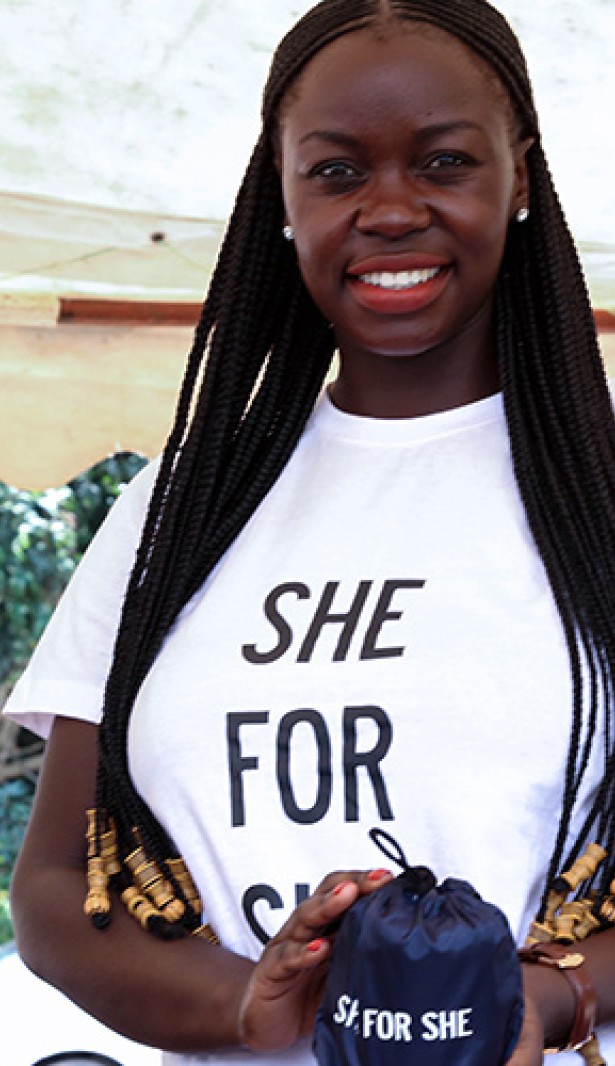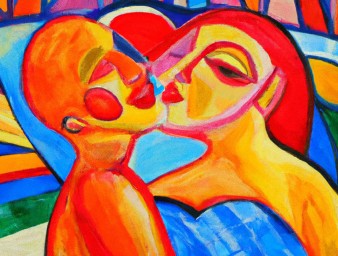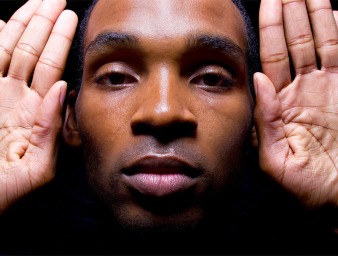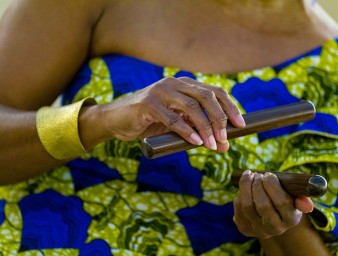"Because your voice is valid"
29 March 2019
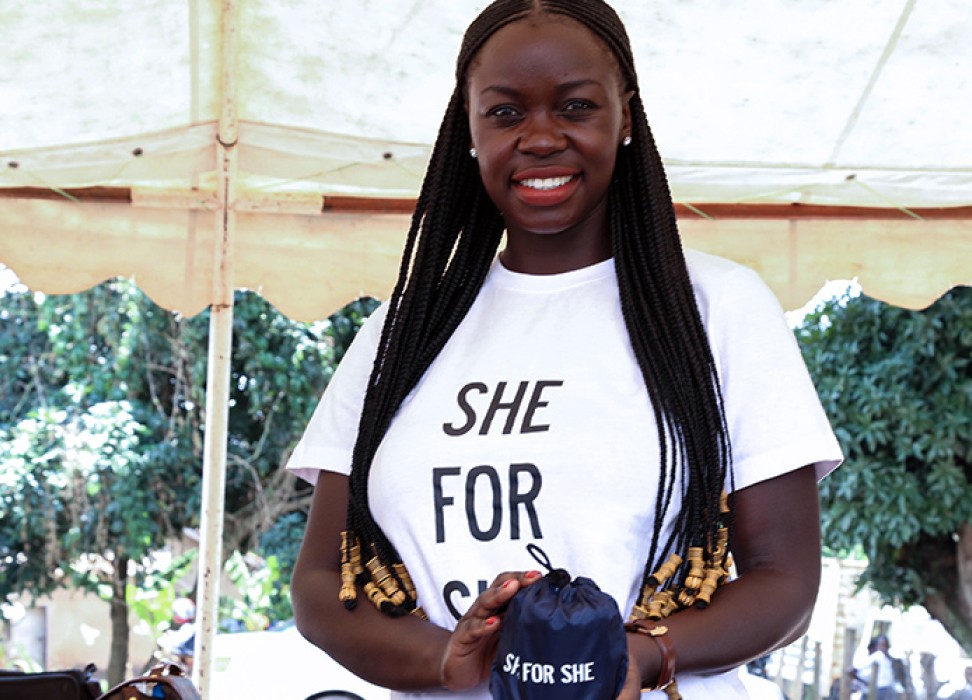
Last November, Mary Consolata Namagambe, a law student and human rights activist from Denmark, was chosen to take part in the UN Human Rights Fellowship Programme for People of African Descent.
She wanted to hear the experiences of the other Fellows in the programme and learn how to reinforce her activism by learning how to use the different mechanisms of the UN Human Rights system.
Her weeks in the programme gave her greater insight about her own struggle. "I know that it's not just me being sensitive because there are mechanisms in the UN, in the human rights conventions, that do protect people who look like me.
Namagambe left her native Uganda at the age of nine to move to Denmark with her parents. Early on, she noticed her difference. At first, the attention she received from her classmates made her feel special.
"I was the first brown African kid in the class so everybody was excited about me. They wanted to touch my skin, to touch my hair… So I felt I was different but in a good way, she says. "But the more I began understanding the language and I began noticing things that other kids would call me.
Soon, Namagambe heard the racial slur she was called. She did not understand what it meant at first, but she instinctively knew it was demeaning. ’Neger’ a word in Danish most commonly translated to negro, but in its worst usage is equivalent to ‘n****r’.
"It was really hard for me to grow up in Denmark understanding what my color meant and learning how to love myself. Nobody on TV looked like me and when I opened newspapers nobody looked like me, she says.
Namagambe also felt excluded from the political space where campaign messages never featured people of African descent. She recalls her parents’ frustration when they would come home from a day’s work, talking about the marginalisation and discrimination they felt from Danes.
Young activism
"When I developed my voice I claimed the fact that I too am a part of those Danes and because of that I was not going to have this conversation within [my family’s] home. I was going to have this conversation broadly, all over Denmark. I was going to tell Danes how it feels to be an Afro-Dane, she says.
"That's how my activism began. I told myself that I live here, I love this country and I want to teach the people I live with how to treat me and how to talk to me, so we all can be together, she adds.
At 24, Namagambe wanted to create a platform where people of African descent could talk about what it meant to them to be called ‘n****r’, and to reflect on the experiences they had when that happened. She created an organization called The N-word Hurts.
"It was a very sensitive project because I could see myself in it. I could see being young and being bullied. It was really important for me to create a space where we could have a voice, have a conversation and also teach our fellow Danes what this word does to us, she says.
She also created the platform Udlændinge vejleder udlændinge, Foreigners Guiding Foreigners in English, a peer-to-peer guidance-counselling programme for newly arrived foreign students who had difficulty navigating the Danish education system.
Later, Namagambe wanted to help young women and girls in her country of origin. Like in many parts of the world, a number of young women and girls in Uganda are forced to stay home for several days a month because of their periods. The prohibitive cost of sanitary protection prevents them from buying pads every month; as a result, they cannot go to school or to go work during their periods.
Namagambe founded She for She, a company that locally produce reusable sanitary pads in several African countries. It was a way for her to empower women and girls in Uganda; her company has now expanded to other countries in Africa.
She reflects on how her activism started.
"When I began it was mainly because I didn't want to just sit and listen. I didn't want to just sit and be mad. I wanted to be a part of the conversation, she says. "If you see that something in your community is not right, if you can feel in your bones that what is happening is unfair, stand up!
"Because your voice is valid. If at first when you stand up and you wonder, "Are they listening to me? Do I matter?" you should just keep on speaking.
